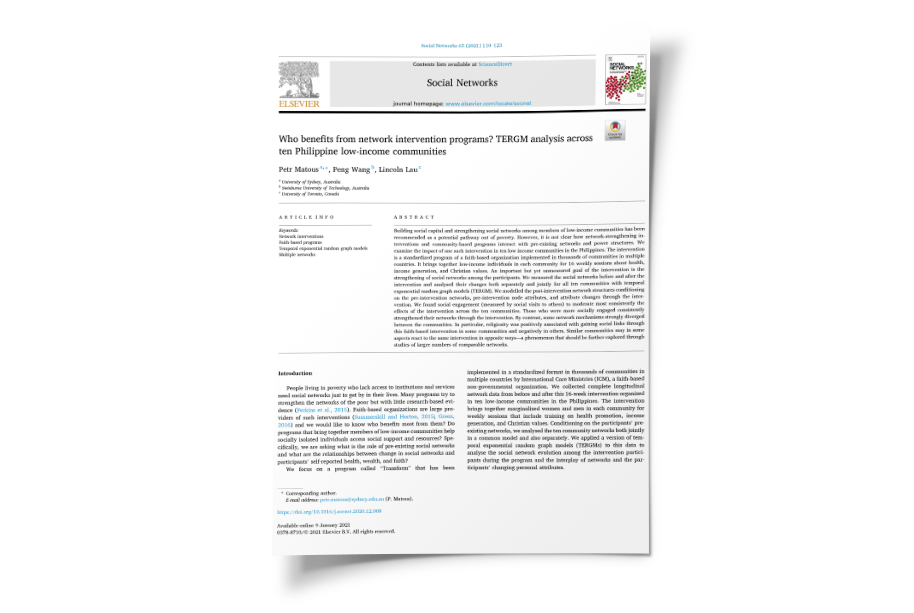Abstract
Building social capital and strengthening social networks among members of low-income communities has been recommended as a potential pathway out of poverty. However, it is not clear how network-strengthening interventions and community-based programs interact with pre-existing networks and power structures. We examine the impact of one such intervention in ten low income communities in the Philippines. The intervention is a standardized program of a faith-based organization implemented in thousands of communities in multiple countries. It brings together low-income individuals in each community for 16 weekly sessions about health, income generation, and Christian values. An important but yet unmeasured goal of the intervention is the strengthening of social networks among the participants. We measured the social networks before and after the intervention and analysed their changes both separately and jointly for all ten communities with temporal exponential random graph models (TERGM). We modelled the post-intervention network structures conditioning on the pre-intervention networks, pre-intervention node attributes, and attribute changes through the intervention. We found social engagement (measured by social visits to others) to moderate most consistently the effects of the intervention across the ten communities. Those who were more socially engaged consistently strengthened their networks through the intervention. By contrast, some network mechanisms strongly diverged between the communities. In particular, religiosity was positively associated with gaining social links through this faith-based intervention in some communities and negatively in others. Similar communities may in some aspects react to the same intervention in opposite ways—a phenomenon that should be further explored through studies of larger numbers of comparable networks.
Potential Industry Impact
- Builds on social network mapping to deliver intervention programs in low-income communities more effectively and inclusively.
Academic Impact
- Unique experimental longitudinal network data from a large number of communities.
- Novel methods of network analysis.
- Contribution to theory of network interventions and relevant ethical considerations.

Authors:
Petr Matous, Peng Wang, Lincoln Lau
Journal:
Social Networks, Volume 65 (May, 2021)
Read:
https://doi.org/10.1016/j.socnet.2020.12.008

